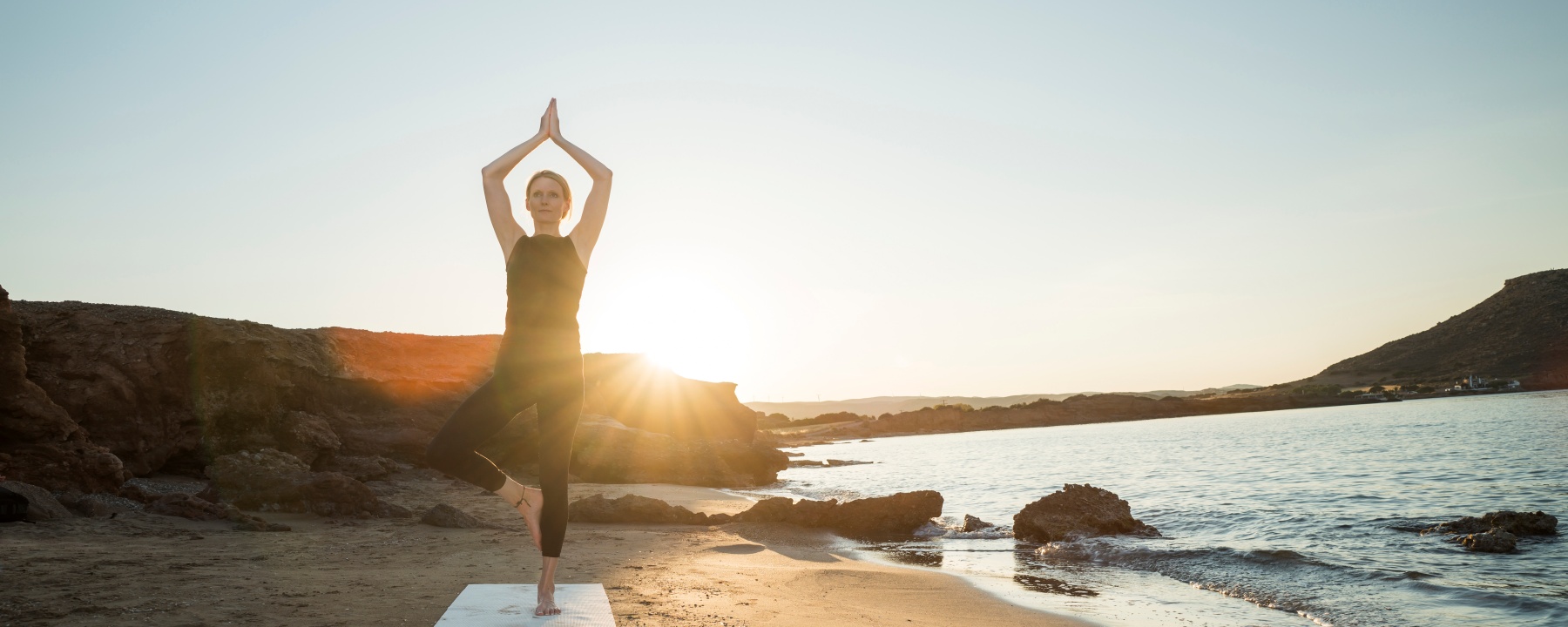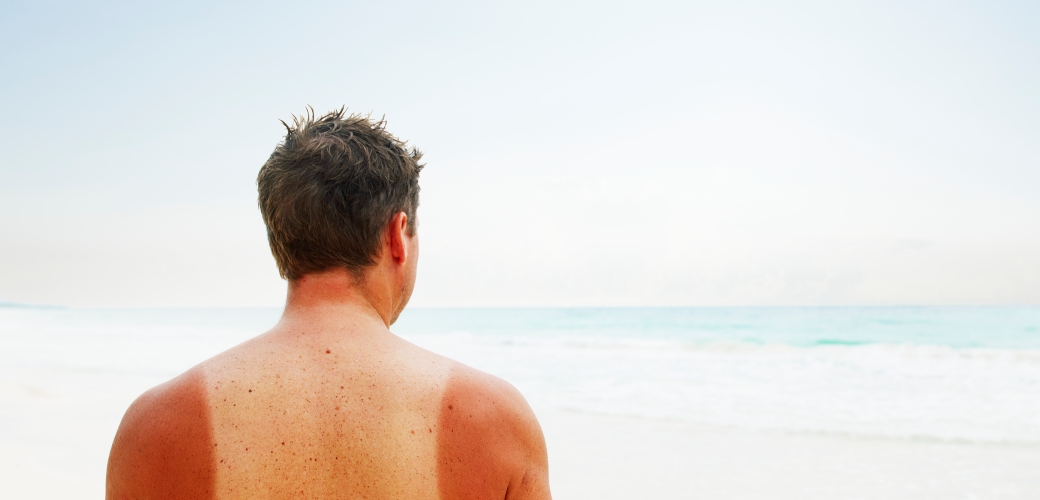
Sun protection
After the sun comes care
If "after sun" was a language, which is to say skin care after being out in the sun, then you might think it was directed purely at holidaymakers who like to soak up the sun's rays. That would amount to a very limited group of consumers. The fact is, though, that whether you’re on holiday, working outdoors or simply enjoying your life and hobbies outside: sun protection isn't limited to the holiday season – and neither is skincare afterwards.
Admittedly, pictures of holidays, sunbathing and good vibes have more charm to them than images of slaving away under the blazing sun. And for once, we don't want to dismiss the idea: we're all for a long sunbathing session on the beach, in the pool or in the mountains – as long as we don't forget the importance of after-sun skincare.
The day's holiday was super relaxed and chilled out and now you're in the mood for a delicious dinner. You're feeling well rested and at peace. It's hard to imagine at this moment, but your skin may feel completely different. It could be stressed, rough and dry. A world away from being relaxed. You might even notice this stress once you're back in your hotel room, standing in the shower or in front of the mirror. “But I used sunscreen,” a few might think. Even so, your skin makes its presence felt.
The invisible danger
You see, it never really went on vacation. It has been exposed to several very different stress factors every day – making daily care essential. In addition to UV rays, it has to deal with smog, ozone, dry air and stress itself.
Okay, fine, we said stress, but hopefully that's one thing you aren't dealing with on holiday. Sea water and pool water containing chlorine, on the other hand, are two factors that can exacerbate “sun damage”.
No one can see or feel what they need to pay particular attention to when it comes to sun protection. UV rays, part of the spectrum of optical radiation (ultraviolet – visible light – infrared), are simply unable to be perceived, with the exception of a few animal species that can see UV (especially UV-A) rays. By contrast, the effects on the skin and eyes are something we can clearly perceive. From mild skin redness and sunburn to premature skin aging and the formation of cancerous skin cells, we have plenty of reasons to protect ourselves extensively and comprehensively against UV rays. It's also important to take the necessary care after being out in the sunlight, as this minimises stress on the skin.
When it comes to UV light, it is important to remember that people are very sensitive to the sun's UV light. Individual skin type plays an important role. Skin type determines the sensitivity to erythema, i.e. how quickly a person gets a sunburn. This is due to the amount and type of melanin formed in special skin cells (melanocytes). This skin pigment is great for providing natural protection from sunlight. UV radiation stimulates the additional formation of this pigment to increase natural protection.
The effects of sunlight on the skin (no particular sequence):
Positive impacts
- The sun’s rays stimulate the formation of nitric oxide in the skin, which in turn encourages the expansion of blood vessels (vasodilation). This reduces arterial pressure and lowers blood pressure. This reduces the risk of heart attacks and strokes over the long term
- Sunlight stimulates our breathing, blood circulation and metabolism
- Creation of vitamin D
- Thickening of the top layer of the skin
- When there is enough sunlight, the body releases more of the happy hormone serotonin, which puts people in a better mood and makes them feel calmer, more satisfied and happier
- Sunlight inhibits the creation of the sleep hormone melatonin that makes us feel tired
However, it can also cause damage:
Negative impacts
- Direct and indirect damage to DNA
- Damage to collagen and elastin
- Formation of free radicals
- Immunosuppression
- Inflammation of the conjunctiva and cornea in the eyes
Visible signs of excessive exposure to the sun:
Visible signs
- Sunburn (mainly UV-B, partly UV-A)
- Premature skin aging / wrinkles / leathery skin / moles or liver spots
- Skin cancer (basal and squamous cell carcinoma, melanoma)
- Cataracts
- Heat damage, e.g. sunstroke
- Increased melanin production for the skin’s own protection, resulting in tanning
We’ve already made a minor detour into the bathroom – and want to keep things there. Start your after sun ritual with a refreshingly cool shower. This rinses off seawater, chlorine from the pool, perspiration and sand (if applicable). At the same time, it immediately soothes and cools irritated skin. Incidentally, the same applies to hair. Dry gently but avoid rubbing it too hard. Your skin needs calm, not turbulence.
After sunbathing, give your skin its own form of relaxation. The formulations found in after sun products –most of which are very light – contain antioxidants and provide the skin with moisture, release tension and cool it as much as it needs. The skin absorbs these products quickly, helping it to relax in no time. A word of warning: it is better to avoid greasy creams so the skin can release the heat stored over the course of the day. If the cream is too rich or heavy, this causes the heat to build up. For the hair, it is best to use a conditioner/rinse for regeneration.
Ask your doctor or pharmacist
What if you realize that your skin is more than just stressed? If you have “caught” a slight sunburn that “only” affects a small area of your body, rapid cooling can provide enormous relief. Use a wet towel or, if available, a cooling gel and cover or smooth into the burnt area. There are also special creams for these cases, which are very beneficial for the skin. These can be obtained from the pharmacy.
If the sunburn is severe, you should immediately seek medical treatment, which can relieve your pain. It’s best to avoid the many recommendations on the Internet. Did you also see the one about onions and lemon juice? If so, then delete these “household remedies” from your list.
The skin is already affected before sunburn sets in. The damage may not be immediately visible, but it triggers processes that inevitably lead to damage later on.
We love the sun. It is extremely important to regularly refuel with sunlight, as are the right sun protection and skin care.

